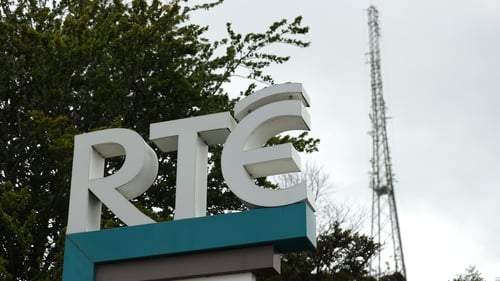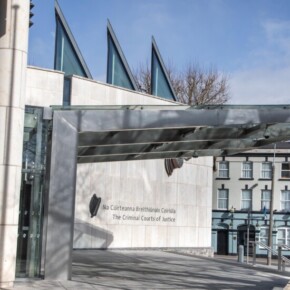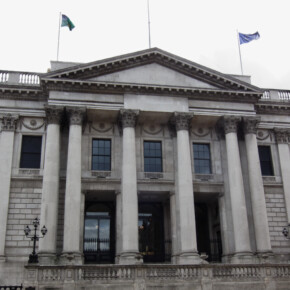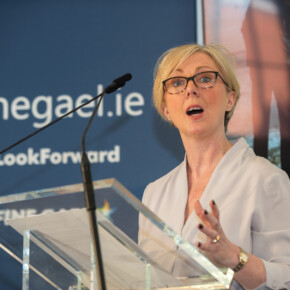Licence fee to be kept amid RTÉ money woes
Mike Finnerty 31 Jul 2024
The long-running RTÉ saga, which has proven to be more dramatically compelling than what appears on the television screen, has come to an end.
A year on from amusing Dáil committee hearings about flip-flops and thousands of people cancelling their licence fee en masse, RTÉ’s financial future has been secured in the medium term.
After months of back and forth between Minister Catherine Martin and her Fianna Fáil Cabinet colleagues who control the pursestrings, a compromise has been reached where the licence fee payment will be kept (the Fine Gael as well as some parts of Fianna Fáil’s approach) and there will be direct exchequer funding of RTÉ (the Green and certain Fianna Fáilers approach).
It was reported in January that Minister Catherine Martin favoured direct government funding of the state broadcaster, which is the model in most other European countries, but she faced resistance from Cabinet colleagues who were looking into how to make RTÉ more financially sustainable.
This week’s compromise has ended nearly a year of speculation about RTÉ’s financial future, with Taoiseach Simon Harris saying that Martin has “delivered for public service broadcasting.”
RTÉ will receive €725 million in funding over the next three years, with the Taoiseach remarking “I guarantee you, you could bring any minister out and if you told them you could offer them multiannual certainty for the next three years they’d take your right arm off.”
Funding for 2025 will start at €225 million, rising to €240m in 2026 and €260m in 2027.
Martin said, “while there has been much debate around how a stable future for RTÉ would be provided, a priority for me as Minister for Media has always been guaranteeing the future funding and restructuring of RTÉ, and that it is sustainable and acceptable to the public.”
“What has been agreed provides financial stability for RTE for future years, coupled with reformed fee collection methods; this is unprecedented.”
“Guaranteeing that funding is an accomplishment that will serve viewers, listeners and audiences – that will serve all of our society,” she said.
Tánaiste Micheál Martin said that keeping the licence fee was important as it provided RTÉ with an important source of revenue, independent of the government.
To that end, An Post has been granted €6 million in funding to improve licence fee collection services.
In April, the Irish Independent reported that An Post offered “resilience training” to licence fee collectors who were facing abuse on the doorstep, with Seán McDonagh, General Secretary of the Communications Workers’ Union, telling RTÉ that licence fee collectors’ jobs have become “more difficult” since the RTÉ scandal broke last June.
Government statistics from January showed that licence fee renewals dropped 13% in Ireland in 2023, compared to statistics from 2022.
This revenue hit translated to €34 million in lost revenue for RTÉ, already struggling with financial issues prior to the crisis.
Keeping the licence fee has attracted criticism from opposition parties, with Dublin Sinn Féin TD Louise O’Reilly saying “the writing is on the wall” for the licence fee.
She noted that scrapping the licence fee altogether was the preferred option of Fianna Fáil and the Greens, but claimed that Fine Gael cotowed their coalition partners into retaining it.
Within Fianna Fáil, keeping or scrapping the licence fee was split between its urban and rural TDs, with urban TDs generally in favour of keeping it and more rural TDs in favour of scrapping it.
The Greens, for their part, favoured scrapping it and replacing it with direct funding from the exchequer.
O’Reilly asserted that it was Fine Gael who demanded that the licence fee be kept in place.
“It is long past time the licence fee was scrapped. This decision is indicative of a government with no backbone. Instead of reform and change, they cling to the status quo,” she said.
“We are seeing ordinary people dragged through the courts and a Minister who knows that this is wrong but refuses to stand up for these people. Sinn Féin had a clear and credible proposal that would have seen RTÉ funded through direct exchequer funding and ordinary households no longer forced to bear the burden of this regressive levy.”
SIPTU members employed in RTÉ have said they do not agree with the government’s funding plan for the state broadcaster.
SIPTU organiser Teresa Hannick said “we believe that this announcement is a failure by the government to address the crucial need to put the funding of public service media in Ireland on a solid basis for the future. Minister Catherine Martin has now placed conditions on how RTÉ spends its money, tying it to the station management’s restructuring plan.”
In June, RTÉ’s 5-year plan detailed that they would look to cut over 400 jobs during that time and have at least 20% of RTÉ’s output broadcast and produced from Cork as opposed to Dublin.
“Our members do not accept parts of the RTÉ management plan which will see the public broadcaster stripped of many of its core functions to the benefit of outside private companies and the privatisation of certain roles at the station,” she said.
“The Government has decided to ignore its own The Future of Media Commission recommendations which included that RTÉ be funded fully by the exchequer. However, this was the only one of its recommendations that the government has proposed not to enact. The decision to retain the licence fee and supplement it with a multi-annual stream of exchequer funding for RTÉ and public service media is at odds with that recommendation.”
She added “while the Government has announced a significant increase in the level of public funding, our members are concerned that many financial gaps will remain. They do not accept that workers at the station should pay the price for the historic failure of successive governments to adequately fund public service broadcasting or the gross mismanagement of the public broadcaster in recent years.”











